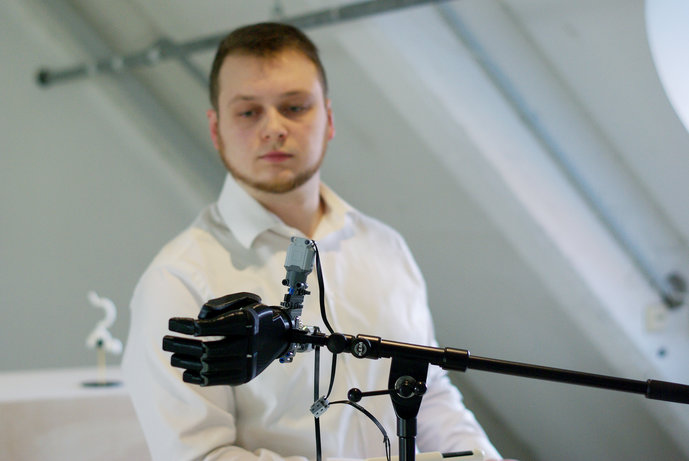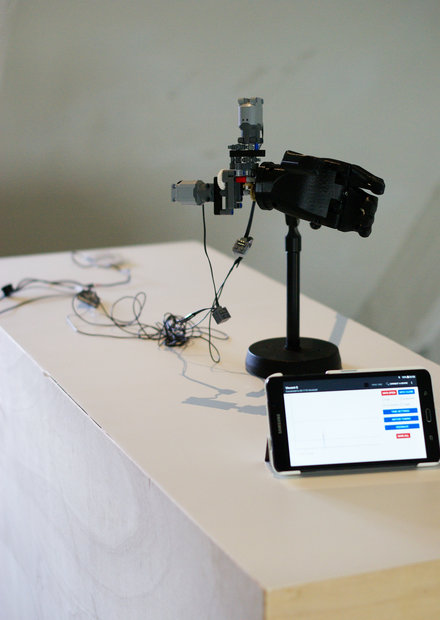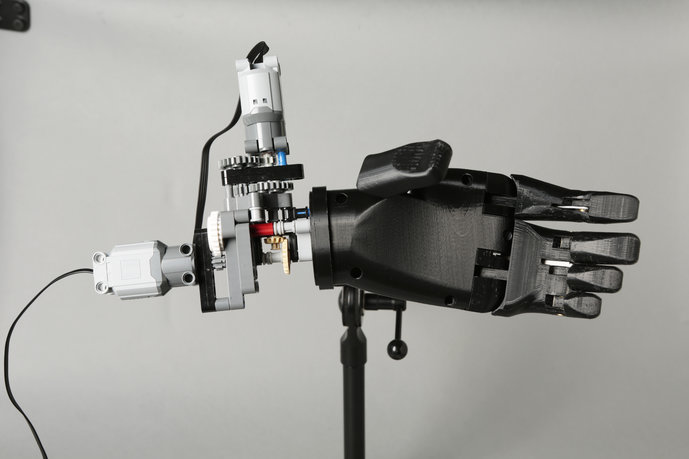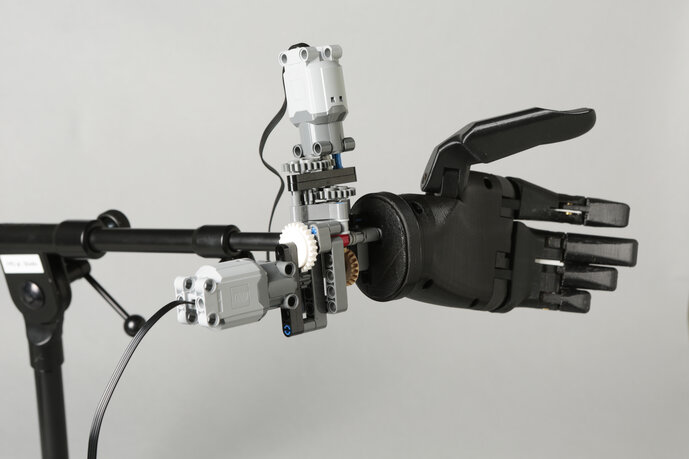

© Hannes Gerlach


© Hannes Gerlach


© Hannes Gerlach


© Hannes Gerlach
The hand is our key to the world. We use it not just to perceive the environment, but it is also a means of communication, allowing us to do great things. It plays a significant part in the culture in which we live today. It is therefore one of the worst injuries if this complex part of the body is missing.
Hannes Gerlach’s diploma work summarizes his research into the history and status quo of modern hand prosthetics. Building on this knowledge, a concept for a prosthesis that tries to resolve these known challenges is developed.
One of the main aims is to develop a robust prosthesis. In order to attain this goal, disruptive factors must be systematically eliminated. Water and dirt should not come in contact with the sensitive gear and electronics. The construction must also ensure that abrasion on the moving parts is avoided.
A capsule construction lends itself to this purpose. All electronics and motors are securely built in, ensuring stability and eliminating wear of the cables through any movement between the motor and control. A capsule is also easier to proof against water and dirt, which protects the moving parts and electronics. Such a construction would require space in the hand for such a component, so that the size and optics of the natural hand can be maintained. In return for the highest level of robustness, function must be compromised. At Vincent Systems, it was estimated that three motors including the control could be placed in the volume of the hand, which still offers more functionality than readily available low-tech prosthesis, despite reductions. The motors transfer their power outwards through the axes. Because the transfer is not coupled with a specific construction of the external part, it is possible to use the power in different ways. This not only allows the aesthetic fingers to be powered, but other tools can be utilized as well. This is a modular system that diversifies the application of prosthetics.
In his diploma work, Gerlach develops applications for such a modular prosthesis, taking into consideration aesthetic aspects and combining the hand with tools.
The Manos System responds to the many needs of the prosthesis user. It consciously foregoes a part of aesthetics and functions of the human hand, to fulfil the primary requirement of robustness. Additionally, it provides an affordable alternative to new myoelectric prosthesis, and offers the possibility to adapt to future use areas, due to the modular construction, making it highly expandable.
Should this concept be implemented as a marketable prosthesis, it comes as a compromise between user needs and the cost for suppliers as a standard in the provision in question, and could also find use in countries with different models of care as “midtech prosthetics”.